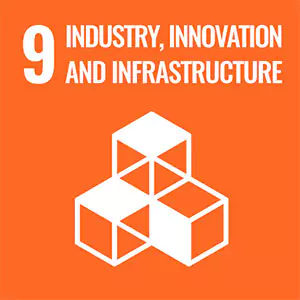MSc Cybersecurity
Our society is increasingly dependent on digital infrastructures, and as a result, cyberattacks on power grids, financial systems, and communication infrastructure have devastating consequences. Cybersecurity has emerged as one of the most critical challenges for the future. In a domain where knowledge is scarce, the master's programme in Cybersecurity provides a modern portfolio of courses fostering the cybersecurity engineers of the future.

Cybersecurity at KTH
Cybersecurity is a broad and multifaceted subject. It spans from fundamental computing theory to software engineering, computer communication, large-scale distributed systems, and physical process control into human and social behaviour. The programme is rooted in computer science and extends to business and social aspects of cybersecurity. The programme starts with mandatory courses providing an overview of the field, including a course in ethical hacking, and a solid base in the fundamental security pillar of cryptography. There is also a mandatory course that put cybersecurity in a sociotechnical context with law, policy, threat actor behaviour, end-user behaviour, and security governance.
At the heart of the program are all the cybersecurity related courses available at KTH. This includes software security, communication network security, digital forensics, privacy, cryptography, cyber risk analysis, cyber-physical security and hardware security. Here you choose courses totalling a minimum of 30 ECTS. The program also allows to choose freely among all KTH courses (for which you have the qualifications). This allows you to combine your cybersecurity skills with other skill sets, such as software technology, machine learning, or management, or perhaps just dig deeper into cybersecurity.
During the final semester of the programme, you will carry out a master's degree project where you work closely with the KTH research faculty within cybersecurity. In addition to involving KTH research faculty in the programme, we have also made extra efforts to build close ties with the industry. The programme has a reference group that gathers key cybersecurity individuals from the Swedish industry and the public sector. Many courses include external guest lecturers, and many master's degree projects are done in collaboration with companies.
Infrastructure that students can get in contact with includes, for example, a lab for ethical hacking. Students can also participate in extracurricular events such as the yearly midnight sun capture the flag competition that KTH co-founded, as well as the Cybersecurity and Privacy (CySeP) Summer School.
Even though the programme is campus-based, it is no surprise that much of the teaching is conducted digitally. This is a two-year programme (120 ECTS credits) in English. Graduates are awarded the degree of Master of Science. The programme is given mainly at the KTH Campus in Stockholm by the School of Electrical Engineering and Computer Science (at KTH).
Courses in the programme
The courses in the programme cover topics such as software security, communication network security, ethical hacking, privacy, cryptography, cyber risk analysis, cyber-physical security and hardware security.
Courses in the master's programme in Cybersecurity
Future and career
Career opportunities are plenty in the field of cybersecurity. Digitalisation is increasing rapidly, and with every new digital feature, the IT security of that feature needs to be ensured. There is also a vast security deficiency in older IT infrastructures running our world that were not designed with security in mind. Moreover, bottom-line security is a never-ending chase between attackers and defenders planning and reacting to each others’ behaviour, technical knowledge and deployed technology.
There is a demand for cybersecurity expertise in almost all fields. On the software development side, this ranges from start-ups and small companies to large enterprises. On the user side, this includes all organisations employing software systems for running their business and operations. The programme provides you with competencies for multiple cybersecurity tasks ranging from managerial positions to technical experts.
Cybersecurity is also a growing academic area, an expanding research field with opportunities to pursue a PhD at technical universities in Sweden and abroad. Several surveys in recent years have highlighted cybersecurity as an area with a high demand for more competence. The US Bureau of Labor Statistics lists cybersecurity jobs as one of the fastest-growing professions in the US, expected to increase over seven times faster than the US average job growth of 4% by 2029.
Sustainable development
Graduates from KTH have the knowledge and tools for moving society in a more sustainable direction, as sustainable development is an integral part of all programmes. As the sustainable society is increasingly dependent on a digital infrastructure it is also assumed that this infrastructure is resilient and secure. Therefore, sustainability is an integral aspect of cybersecurity, supporting several of United Nation's Sustainable Development Goals, most clearly:



Affordable and Clean Energy
A clean energy future depends on uninterrupted digital control systems for generation and distribution. Students learn to secure energy infrastructures against cyberattacks, from protecting smart grids to defending renewable energy plants. Simply put, energy will not be clean and affordable if adversaries can disrupt supply at will. Graduates leave equipped to ensure these systems remain both efficient and secure.
Industry, Innovation and Infrastructure
The competitiveness of modern industries hinges on robust, cyber-secure infrastructures. Students gain practical skills in intrusion detection, secure network architecture, and risk management tailored to industrial environments. These abilities help organisations integrate new technologies and automation while maintaining operational safety and reliability over time.
Sustainable Cities and Communities
Urban life is increasingly shaped by connected systems. from public transport to emergency services and smart city applications. The programme trains students to identify vulnerabilities, design resilient communication networks, and safeguard critical municipal services against cyber threats. This expertise helps cities evolve sustainably without exposing their residents to digital risks.
Faculty and research
The School of Electrical Engineering and Computer Science at KTH hosts several research groups working within various areas of cybersecurity. The following prominent professors provide a glimpse into these activities:
KTH hosts the Centre for Cyber Defence and Information Security (CDIS), a collaboration with the Swedish Armed Forces. Not all, but many of KTH’s cybersecurity research projects are run in this centre. Descriptions of ongoing projects are found at the CDIS website for the curios to explore.







